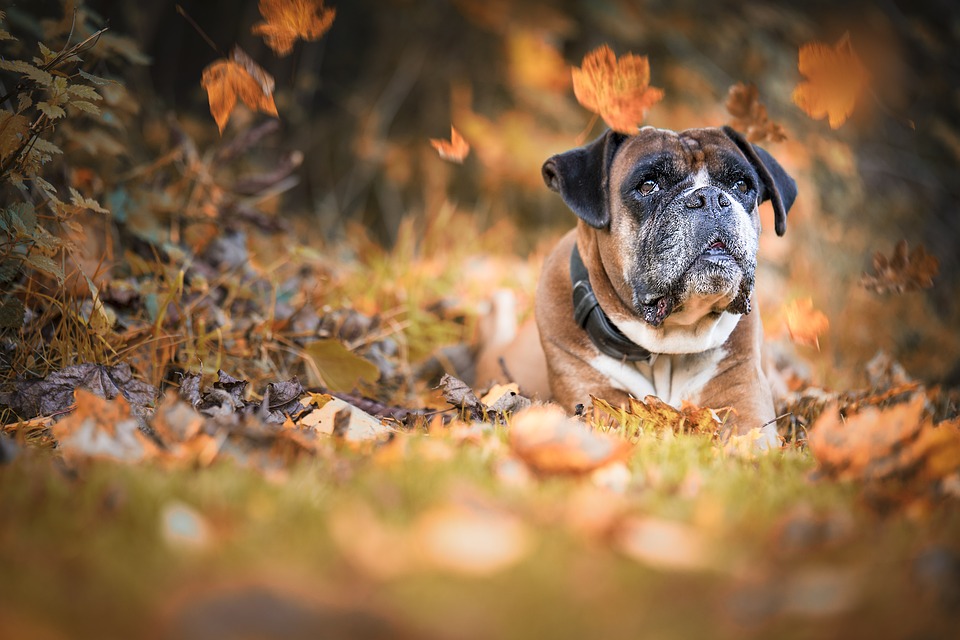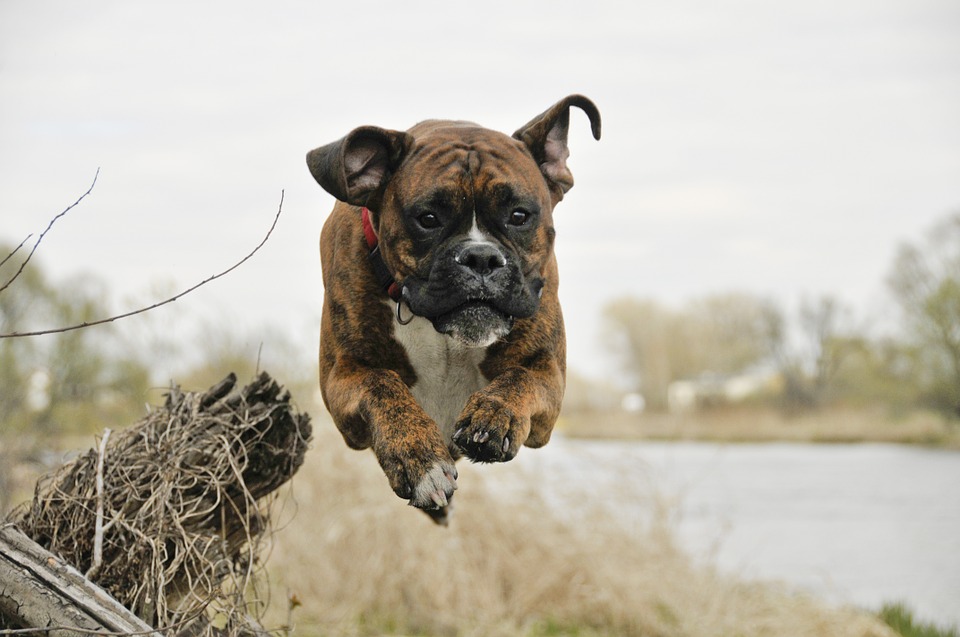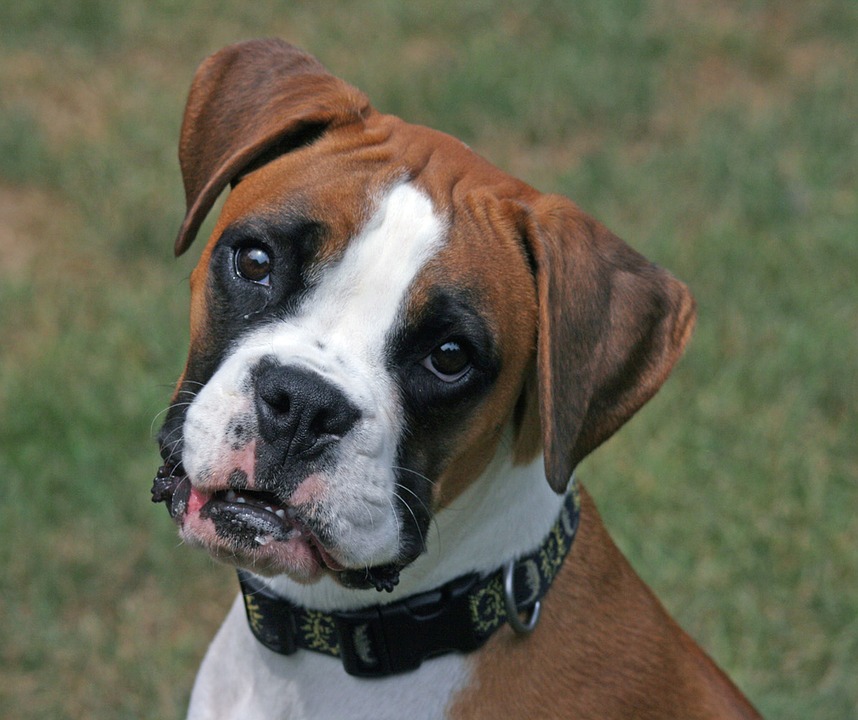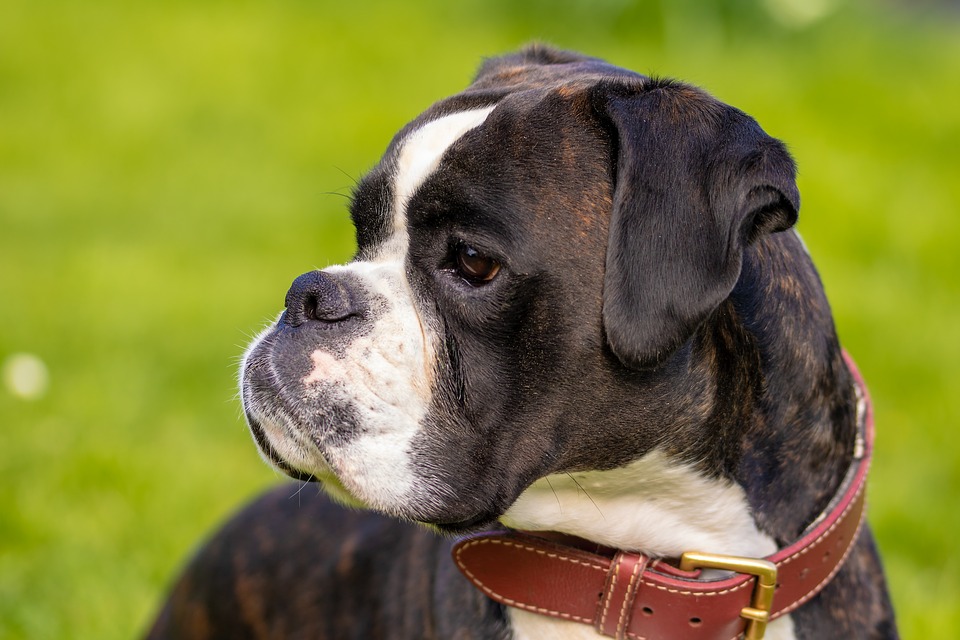
Boxer: Energetic, Playful, and Loyal Companion
The Boxer, a beloved breed known for its muscular build and distinctive «boxing» behavior, has a rich history dating back to 19th-century Germany. Developed from the now-extinct Bullenbeisser breed, Boxers were originally bred for bull-baiting, hunting large game, and serving as working dogs alongside their owners.
In the early 20th century, Boxers transitioned to become versatile working dogs, serving as military and police K-9 units, as well as excelling in various dog sports such as obedience, agility, and schutzhund. Today, they are cherished as loyal family companions and esteemed guardians.
Physical Characteristics

Boxers are medium to large-sized dogs with a powerful and athletic build. They typically stand between 21 to 25 inches tall at the shoulder and weigh anywhere from 55 to 75 pounds. Boxers have a short, smooth coat that lies close to their body and comes in various shades of fawn or brindle, often with white markings.
One of the breed’s most notable features is its distinctive square-shaped head, accentuated by a broad muzzle and a distinct undershot bite. Boxers have dark, expressive eyes and high-set, cropped ears that give them a keen and alert expression.
Health and Basic Care

Boxers are generally healthy dogs with a lifespan of around 10 to 12 years. However, like all breeds, they may be prone to certain health issues, including hip dysplasia, heart conditions such as aortic stenosis, and degenerative myelopathy.
Regular veterinary check-ups, a balanced diet, and plenty of exercise are essential for maintaining their health and well-being. Basic care for a Boxer includes regular grooming to keep their coat healthy and free of debris. Their nails should be trimmed regularly, and their teeth should be brushed frequently to prevent dental issues.
Temperament and Personality

Boxers are renowned for their friendly, playful, and outgoing nature. They are affectionate and loyal companions that form strong bonds with their families, often becoming devoted protectors of their loved ones. Despite their muscular appearance, Boxers are gentle and patient with children, making them excellent family pets.
Boxers have a high energy level and require regular exercise and mental stimulation to prevent boredom and destructive behavior. They enjoy interactive play, such as fetch or tug-of-war, and excel in various dog sports and activities. Boxers thrive on human companionship and prefer to be included in all family activities.
Training and Socialization

Training a Boxer requires consistency, patience, and positive reinforcement techniques. They are intelligent dogs with a strong desire to please their owners, but they may also exhibit stubborn tendencies, particularly during adolescence.
Early socialization is essential for Boxer puppies to ensure they grow up to be well-adjusted and confident dogs. Exposing them to different people, environments, and stimuli from a young age will help prevent fearfulness or aggression later in life.
Nutrition

A well-balanced diet is crucial for maintaining the health and vitality of a Boxer. Choose a high-quality dog food formulated for their age, size, and activity level, with a balance of protein, fat, carbohydrates, vitamins, and minerals.
It’s essential to provide fresh water at all times to keep your Boxer hydrated, especially during periods of exercise or hot weather. Treats can be given in moderation as rewards during training sessions, but avoid feeding table scraps or high-calorie snacks that can contribute to weight gain and nutritional imbalances.
Suitable Environment

Boxers are adaptable dogs that can thrive in various living environments, including apartments, suburban homes, or rural settings. However, due to their high energy level, they require ample space to run and play.
While Boxers enjoy spending time indoors with their families, they also benefit from regular exercise and outdoor playtime. Daily walks, play sessions, and interactive games will help keep them physically and mentally fit. Boxers are social animals that enjoy the company of their human companions and prefer to be included in all family activities.
Frequently Asked Questions
Are Boxers good with children?
Yes, Boxers are known for their gentle and patient nature, especially with children. They are affectionate and playful companions that enjoy interacting with kids and make excellent family pets.
Do Boxers require a lot of exercise?
Yes, Boxers are high-energy dogs that require regular exercise to stay healthy and happy. Daily walks, play sessions, and engaging activities are essential for meeting their exercise needs.
Are Boxers prone to health problems?
While Boxers are generally healthy dogs, they may be prone to certain health issues, including hip dysplasia, heart conditions, and degenerative myelopathy. Regular veterinary check-ups and a balanced diet are essential for monitoring their health and addressing any potential issues early on.
Are Boxers good guard dogs?
Yes, Boxers are natural protectors of their families and make excellent watchdogs due to their alertness and loyalty. While they are not aggressive, their intimidating appearance and deep bark serve as a deterrent to potential intruders.
Are Boxers easy to train?
Boxers are intelligent dogs with a strong desire to please their owners, but they may also exhibit stubborn tendencies. Consistent training and positive reinforcement techniques are key to successfully training a Boxer.
Do Boxers get along with other pets?
With proper socialization, Boxers can get along well with other pets, including dogs and cats. Early introductions and positive interactions are essential for fostering good relationships between Boxers and other animals in the household.
Do Boxers bark a lot?
Boxers are not known to be excessive barkers, but they will bark to alert their owners to potential threats or unusual noises. Early training and socialization can help prevent excessive barking behavior and teach Boxers to communicate more effectively.
Are Boxers good apartment dogs?
While Boxers can adapt to apartment living, they require regular exercise and mental stimulation to prevent boredom and destructive behavior. Access to outdoor space for exercise and play is essential for meeting their needs.
Are Boxers prone to separation anxiety?
Boxers are social animals that form strong bonds with their families. While they may experience some degree of separation anxiety when left alone for long periods, early training and gradual desensitization can help prevent and manage separation anxiety behaviors.
Do Boxers drool a lot?
Yes, Boxers are known for their tendency to drool, especially after eating or drinking. While some individuals may drool more than others, it’s essential to keep a drool rag handy to wipe their mouth and prevent drool from getting on furniture and floors.
